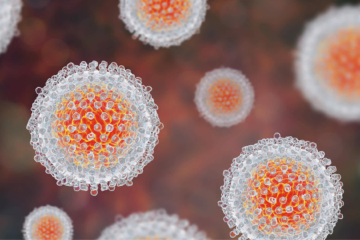
Infertility is a common problem that affects millions of couples worldwide, and male infertility is a significant contributing factor. Male infertility is a complex condition that can be caused by several factors, including genetic, hormonal, environmental, and lifestyle factors. In this article, we will delve into the causes of male infertility and explore the various treatment options available. Whether you are struggling with infertility or simply seeking to improve your reproductive health, this article will provide you with the essential information you need to understand male infertility and take the necessary steps toward fertility.
In some cases, there may be no apparent signs or symptoms of male infertility. However, some men may experience certain symptoms that could be an indication of infertility. Here are some of the symptoms of male infertility:
- Problems with sexual function: Men with infertility may experience difficulty getting or maintaining an erection, or may have difficulty ejaculating during sexual intercourse.
- Abnormal semen: The appearance or consistency of semen may be abnormal, such as having a reduced amount of semen, or having semen that is thick, lumpy, or watery.
- Pain or swelling in the testicles: Infertility can sometimes be accompanied by pain, discomfort, or swelling in the testicles.
- Decreased facial or body hair: In some cases, a hormonal imbalance can lead to a decrease in the amount of facial or body hair.
- Decreased sex drive: Men with infertility may experience a decreased sex drive or a lack of interest in sexual activity.
It is important to note that these symptoms are not definitive indicators of infertility and could be associated with other conditions as well. If you are experiencing any of these symptoms or are concerned about your fertility, it is essential to speak with a healthcare provider who can help diagnose and treat any underlying conditions.
Causes of Male Infertility
- Genetic Factors
Some genetic conditions can cause male infertility. For example, Klinefelter’s syndrome, a condition where males have an extra X chromosome, can cause infertility. Other genetic conditions such as Y chromosome deletions, chromosomal abnormalities, and genetic mutations can also lead to infertility.
- Hormonal Factors
Hormonal imbalances can also cause male infertility. The male reproductive system relies on the hormones testosterone and follicle-stimulating hormone (FSH) to produce sperm. If there is a deficiency in either of these hormones, it can lead to infertility. Conditions that can cause hormonal imbalances include hypogonadism, hyperprolactinemia, and thyroid disorders.
- Environmental Factors
Environmental factors can also contribute to male infertility. Exposure to chemicals, radiation, and certain medications can affect sperm production and quality. High temperatures, such as those experienced by men who work in hot environments or regularly use saunas and hot tubs, can also damage sperm.
- Lifestyle Factors
Lifestyle factors such as smoking, excessive alcohol consumption, and drug use can also contribute to male infertility. These habits can affect the quality and quantity of sperm produced, as well as sperm motility.
Diagnosis
The diagnosis of male infertility typically involves a thorough medical evaluation and a series of tests to determine the underlying cause. Here are some of the diagnostic tests that may be used to diagnose male infertility:
- Semen analysis: This is the most common test used to diagnose male infertility. It involves analyzing a sample of semen for various factors, such as sperm count, motility, and morphology.
- Hormone testing: Blood tests can be used to measure hormone levels, such as testosterone and follicle-stimulating hormone (FSH), which play a critical role in sperm production.
- Genetic testing: Genetic testing can help identify any genetic abnormalities that may be contributing to infertility.
- Testicular biopsy: This involves removing a small piece of tissue from the testicle to assess the production of sperm and identify any abnormalities.
- Ultrasound: An ultrasound can help detect any abnormalities in the testicles or reproductive tract.
- Post-ejaculatory urinalysis: This test involves analyzing a urine sample for the presence of sperm after ejaculation.
It is important to note that the diagnosis of male infertility may require multiple tests and evaluations over time. If you are experiencing infertility, it is essential to speak with a healthcare provider who can help determine the underlying cause and develop an appropriate treatment plan.
Treatment Options for Male Infertility
- Medications
Medications can be prescribed to treat hormonal imbalances and improve sperm production. For example, clomiphene citrate can be used to stimulate the production of testosterone and increase sperm count. Gonadotropin injections can also be used to stimulate the production of FSH and improve sperm production.
- Surgery
Surgery may be necessary to correct physical abnormalities that can cause infertility. For example, varicocele, a condition where the veins in the scrotum become enlarged and cause overheating, can be corrected with surgery. Obstructions in the reproductive tract, such as blockages in the epididymis or vas deferens, can also be corrected with surgery.
- Assisted Reproductive Technologies (ART)
ART involves using technology to help couples conceive. These technologies include intrauterine insemination (IUI), in vitro fertilization (IVF), and intracytoplasmic sperm injection (ICSI). IUI involves inserting sperm directly into the woman’s uterus, while IVF involves fertilizing eggs in a laboratory and then implanting them in the woman’s uterus. ICSI involves injecting a single sperm directly into an egg in a laboratory and then implanting the fertilized egg in the woman’s uterus.
- Lifestyle Changes
Lifestyle changes can also help improve male fertility. Quitting smoking, reducing alcohol consumption, and avoiding drugs can all help improve sperm quality and quantity. Maintaining a healthy weight, getting regular exercise, and eating a balanced diet can also help improve fertility.
Conclusion
Male infertility can be a challenging condition to deal with, but with proper diagnosis and treatment, it is often possible to overcome. If you are struggling with infertility or are concerned about your reproductive health, it is essential to speak with a healthcare provider who can help you understand your options and develop a personalized treatment plan. Whether the underlying cause is hormonal, genetic, or environmental, there are several treatment options available, including medication, surgery, and assisted reproductive technologies. By taking the necessary steps to address male infertility, you can increase your chances of achieving a successful pregnancy and starting a family. Remember that seeking help is the first step towards resolving male infertility, and with the right support, you can take control of your reproductive health and achieve your goals.
Dr. Sumit Sharma is an experienced urologist, andrologist, and kidney transplant surgeon with over 20 years of clinical experience. He is the founder of the Department of Urology at multiple hospitals in Gurgaon and has established successful kidney transplant programs across the city.




Greetings! Very useful advice in this particular article! Its the little changes that will make the biggest changes. Thanks for sharing!